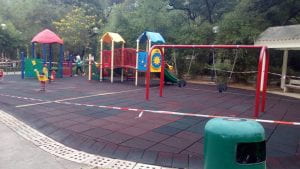16 May 2020
My day starts at 3 AM nowadays because it is Ramadan, the holy month of fasting. We fast from dawn to sunset. While I was preparing breakfast in the kitchen, I suddenly encountered the strong smell of smoke—someone in the neighborhood had to be smoking again. The smell of smoke gives me a headache. The apartments in Hong Kong are so small that you are aware of all the noises and smells in the nearby apartments. Someone in my neighborhood is a chain smoker. The smoking smell has considerably increased since the beginning of the “work from home” period due to COVID-19. It is funny how I have assumed that this smoker is a man, not a woman.
After breakfast, I started working on chapter four of my dissertation, constructing the main outline of the chapter and analyzing a few textual extracts. In this chapter, I am analyzing how the female characters resist environmental violence. My analysis shows that women resist against environmental injustice not only by raising their voices but also by using silence as a powerful strategy of resistance. I thought that sometimes silence is the only available option for resistance. For example, no matter how much uncomfortable smoke makes me, I cannot say anything because there is no such rule which stops anyone from smoking within the bounds of their homes.
My daughter woke up at 8 AM. I took a break from my work and attended to her. While I was preparing food for her, I heard the muffled sound of a child singing, “Oh, baby! Oh, baby!” The kid from the next apartment was singing a song. While enjoying his song, I thought that if it were not for COVID-19, the kid would have been getting ready for school. All schools and universities are closed in Hong Kong due to the epidemic, so children have to attend online classes from home. I thought that like us it must be difficult for his parents to maintain a balance between entertaining children and having them study within the confines of our small apartments.
At 1 PM, I took my daughter out for a walk in the nearby park. I covered her face and hands with a mask and gloves. My 22-month-old daughter understands the principles of “going out.” She associates a face mask with going out of the house, and it sparks joy in her. This whole process somehow made me think that research should be done on how COVID-19 is affecting the psyche of children. While walking towards the park, I saw that there was not a single person without a mask on. I realized that Hong Kongers are very serious about their health. There were only a few people in Hutchinson Park, too. Before COVID-19, it was always crowded. I used to see Chinese women dancing with red-colored hand fans and elderly men doing tai chi, but now only a few people were walking on the track. The children’s play area was closed due to COVID-19. It somehow made me sad, because this epidemic has affected our lives in more ways than we understand.

We returned home at 3 PM. We performed the necessary but monotonous routine of removing our masks and washing our hands. After that, I started working on my dissertation again while my husband took care of my daughter. I read a few articles and replied to emails, working till 8 PM and then going to bed. I had to get up at 3 AM the next day to work for at least four to five hours on my dissertation before my daughter gets up; once she gets up, she needs an undistracted mother, who can feed and play with her.
Abroo Nazar is a Ph.D. student at the Education University of Hong Kong. She is from Pakistan but currently lives in Hong Kong. She has conducted research on the stereotypical representation of Pakistani women in Pakistani English fiction, and her dissertation explores postcolonial female resistance within the framework of spatiality, ecofeminism, and disability studies. Her article titled “Silencing of Subaltern in Our Lady of Alice Bhatti” was published in the International Journal of Language and Education. She also writes fiction and poetry both in Urdu and English.
Related:
Diary Project Hong Kong [1] :: Abroo Nazar
* * *
The Teach311 + COVID-19 Collective began in 2011 as a joint project of the Forum for the History of Science in Asia and the Society for the History of Technology Asia Network and is currently expanded in collaboration with the Max Planck Institute for the History of Science (Artifacts, Action, Knowledge) and Nanyang Technological University-Singapore.
![[Teach311 + COVID-19] Collective](https://blogs.ntu.edu.sg/teach311/files/2020/04/Banner.jpg)